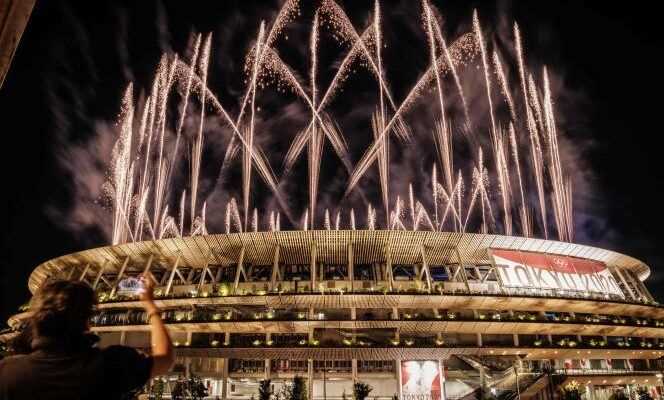The closing ceremony of the Olympic Games (Olympics) in Tokyo, Sunday August 8, put an end to fifteen days of competition and their procession of joys and disappointments. In the non-sporting sphere, the time has also come to take stock. For the Dentsu group, this is negative. Central player in the organization of these Olympics, the powerful Japanese advertising agency comes out with a damaged image and, above all, degraded finances.
The world’s fifth-largest advertising agency had to give up a good chunk of the 10 billion yen (77 million euros) in operating profits it expected to generate through the Games, according to a calculation by Citigroup bank.
She had to face the desertion of the advertisers – starting with the car manufacturer Toyota – who feared to be too closely associated with an event maintained despite the hostility of a majority of Japanese, who did not understand her outfit. in the midst of the Covid-19 pandemic.
Due to the strict sanitary constraints, Dentsu also saw the revenue that it expected to derive from events on the sidelines of the Olympic flame route before the Games, then from fan-zones during competitions, soaring, as spectator gatherings were prohibited.
All these shortfalls have been added to the net losses of 160 billion yen (1.2 billion euros) suffered by the group in 2020. To clean up, at least temporarily, its finances, the latter has put up for sale , in June, its head office in Shiodome, Tokyo. He hopes to get 89 billion yen (688 million euros).
Suspicions of corruption
With the Tokyo Olympics, the agency, endowed with great interpersonal skills and responsible for the communication of the Liberal Democratic Party in power almost without interruption since 1955, intended to repeat its performance achieved during those of 1964, which had enabled it to “Demonstrate the new commercial potential offered by such events”.
Dentsu, which has been systematically entrusted with the organization of major events that have taken place in the country in recent years (such as the G7 in 2016 or the G20 in 2019), carried the country’s candidacy. But, even before having to face the difficulties caused by Covid-19, she found herself at the heart of suspicions of corruption in the application process.
In March 2020, Haruyuki Takahashi, member of the organizing committee and former Dentsu, admitted to having used more than $ 8 million provided by the bid committee to “convince” some to vote for Tokyo, while defending himself from any embezzlement. A year earlier, the president of the Japanese Olympic Committee, also a member of the IOC, Tsunekazu Takeda, was forced to resign.
You have 26.61% of this article to read. The rest is for subscribers only.
